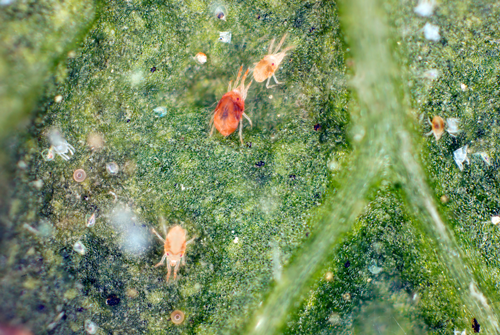Biosecurity: Protecting Australia from pests and diseases
Implementing a strong biosecurity system is critical to ensure that industry and the environment are protected from the introduction, establishment and spread of pests and diseases. Recent outbreaks, such as Varroa mite in New South Wales and foot-and-mouth disease in Indonesia, have raised public awareness of biosecurity and reinforced the importance of preventing such threats from entering Australia. Additionally, the COVID-19 pandemic has improved the public’s understanding of general biosecurity concepts and how they relate to health and the economy.
Amendments to the Biosecurity Act
Management of biosecurity risks is likely to become more challenging as the threat of pests and diseases entering Australia increases due to higher volumes of trade, travel and international freight. Other factors such as climate change, biodiversity loss, increased urbanisation, agricultural intensification, pests and diseases in neighbouring countries, illegal activity, and major global events can also contribute to a complex biosecurity environment.
The Australian Government has recognised these increasing threats to biosecurity and, in December 2022, introduced amendments to the Biosecurity Act 2015 to help strengthen Australia’s biosecurity system. This included the introduction of new measures to manage biosecurity risks arising from travellers, an increase in various penalties, and the addition of a new offence for the concealment of high-risk goods.

Biosecurity threats and their impacts
There are numerous threats to Australia’s biosecurity that can arrive from overseas or spread within the country through pathways such as cargo, sea vessels, aircraft, travellers, post and mail, and the natural environment.
These include:
- animal diseases, such as foot-and-mouth disease, lumpy skin disease and African swine fever
- plant diseases, such as Xylella, Panama disease and Myrtle rust
- pests, such as Khapra beetles, fire ants and Varroa mites
- animal diseases that can be transmitted to humans (zoonotic diseases), such as rabies, Avian Influenza and COVID-19.
The establishment and spread of these pests and diseases in Australia would have significant consequences, including:
- economic impacts due to increased response, management and recovery costs
- devastating impacts to agricultural and horticultural industries, such as lower yields, increased management costs, and damage to crops, produce, livestock or fisheries
- damage to the natural environment, ecosystems, plants and animals, including impacts on land and sea Country of value to Indigenous Australians
- an inability for Australian primary producers to access export markets
- supply chain disruptions
- negative impacts on amenity, cultural heritage, way of life and human health.

Stop pests and diseases
All businesses and individuals have a role in preventing the introduction and spread of pests and diseases in Australia.
- If entering Australia from overseas:
- clean your shoes, clothing and equipment thoroughly to ensure they are free from matter such as soil, seeds, plant material or manure
- check items for potential stowaways
- comply with requirements for declaring items, and do not bring any prohibited goods.
- If travelling within Australia:
- check restrictions on what items can be taken across state and quarantine borders, including when purchasing items online
- between trips to different locations, check vehicles, equipment, shoes and clothing for potentially contaminated matter, and ensure they are cleaned, disinfected and dried.
- If bringing goods into Australia, check if they are allowed into the country. This includes buying goods online from sellers outside Australia.
- Report anything unusual found on your property, or in any goods, containers and parcels.
- If involved in the import of goods, check cargo, containers and vessels for pests.
- Know the signs and symptoms that may indicate the presence of a pest or disease, and how to respond to an outbreak.
For specific guidance for businesses and individuals, see biosecurity.gov.au.

Achieving environmental biosecurity compliance with EnviroLaw
Our online directory EnviroLaw includes biosecurity obligations across all Australian jurisdictions and New Zealand. Here are the Commonwealth environmental biosecurity obligations:
- Biosecurity Incidents
- Biosecurity Emergencies
- Importing Goods
- Prohibited and Suspended Goods
- Biosecurity Measures, Orders and Zones
- Approved Arrangements
Sign up for a free EnviroLaw trial today.
Sources:
- Australian Interstate Quarantine
- Biosecurity Amendment (Strengthening Biosecurity) Bill 2022 – Explanatory Memorandum
- CSIRO Publication: Australia’s Biosecurity Future
- Department of Agriculture, Fisheries and Forestry Publication: National Biosecurity Strategy
- Department of Agriculture, Fisheries and Forestry Webpage: Biosecurity and Trade
- Department of Agriculture, Water and the Environment Publication: Commonwealth Biosecurity 2030
- Farm Biosecurity Webpage: People, Vehicles & Equipment
- National Pest & Disease Outbreaks
- NRM South Publication: Check Clean Disinfect Dry